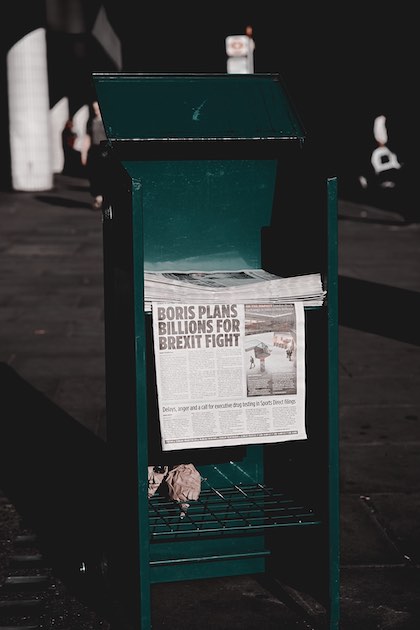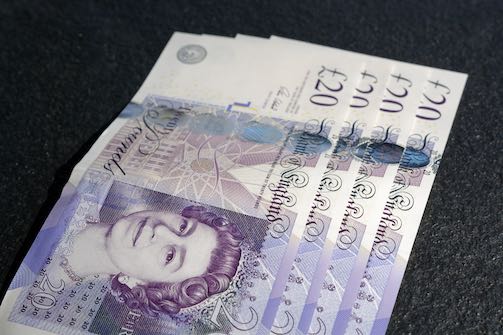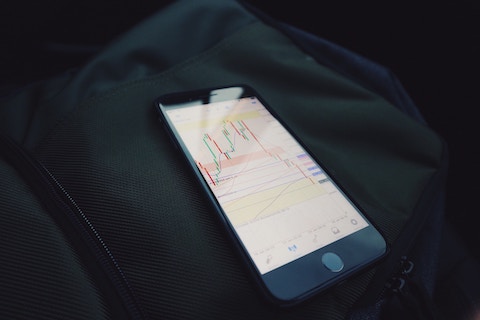Table Of Contents
The Pound Sterling the current currency in England took a beating and plummeted to historical lows while the stock market hit record highs. Britons and the rest of the world are wondering if the country will enter a recession.
In a historic vote last June 2016, the United Kingdom voted to leave the European Union. The event dubbed “Brexit” had an immediate – and massive – impact on the foreign exchange and equities market.
However, the bigger concern is the long-term effect of Brexit on the Pound Sterling. Will Brexit affect the purchasing power of Britons? How will Brexit influence the movement of the currency market?

The Pound Sterling In The Aftermath Of Brexit
Since June 23, 2016 – the date the referendum results were declared “official – the Pound Sterling has been trending downward. Once the news was digested by the currency market, the Pound Sterling plummeted. Any upward movements of the Pound Sterling were just corrective and the currency continued its downward trajectory.

In comparison to its value before the referendum, the Pound Sterling is 15% lower. The biggest losses were versus the United States Dollar and the Australian Dollar. Sellers of the Pound were at a disadvantage. For speculators, the present rates of exchange presented good buying opportunities for the Pound Sterling.
Other Factors That Contributed To The Fall Of The Pound Sterling
When chief Brexit-proponent Boris Johnson announced he would run for the Prime Minister position, the market did not favourably react and dumped the Pound Sterling.
Johnson made the announcement after then-Prime Minister David Cameron resigned from the post.
Likewise, weak economic indicators pushed the Pound Sterling to new currency market lows. In particular, the Purchasing Manager Index which measures activity in the 3 key sectors – services, manufacturing, and construction – registered a huge drop.
There were also rampant fears from Britons that the government did not have a reliable post-Brexit strategy. The international community got involved warning the United Kingdom of repercussions if there was no Brexit transition plan in place.
Of the major cities, London was most affected by Brexit with several large multinational corporations announcing their plans to relocate business to its European neighbours.
All of these factors contributed to making the Pound Sterling the worst- performing currency of 2016.
How low did the Pound Sterling go? Venezuela which was experiencing hyperinflation had its Bolivar ranked higher than the Pound Sterling.
The Pound Sterling was also vulnerable to technological innovations in currency trading.
Traders use algorithms which initiate automatic trades whenever specific conditions are met. Currency market analysts that were tracking the movement of the Pound Sterling on October 20, 2016, believe that the algorithms initiated a sell-off for the currency after the President of France, Francois Hollande questioned the progress of negotiations for Brexit.
On that night – during the Asian market trading session – the Pound Sterling again plummeted to new lows. The Pound had sharply fallen by 2.1% versus the Australian Dollar, 2.2% against the United States Dollar, and 2.3% vis-à-vis the Canadian Dollar.
By the time the European session started trading, the Pound slid even lower. The collapse of the Pound Sterling was perceived as the biggest threat to the economic stability of the United Kingdom since the Financial Crisis of 2008.
Are Traders Behind The Fall Of The Pound?

Based on the observed trend in the fall of the Pound Sterling, the currency reacts adversely then slightly gains ground. For a period of time, the Pound will consolidate or trade narrowly within the new low then the cycle will repeat itself.
Fortunately, some positive news about the economy of the United Kingdom has been keeping the Pound Sterling afloat.
Many traders share the belief that the Pound has remained bearish because participants are maintaining short positions in the currency market. Predominantly short positions on a currency means traders are expecting it to weaken and fall further. Thus, they “borrow” the currency for the purpose of selling it down.
If the bearish predictions come true, the traders will simply buy-back the Pound Sterling at a lower price. After returning the cost of the borrowed funds to the creditor, the trader pockets the difference as profit.
The movement of a currency in the foreign exchange market is a reflection of the sentiments of its participants. At any time, the players in the foreign exchange market are the investors, speculators, and fund manager who have their respective opinions on the value of a specific currency.
With the general consensus leaning toward uncertainty about the government’s plan for a post-Brexit Britain, the sentiment of the market for the Pound Sterling has not been optimistic to say the least.
The truth is, the decision of the United Kingdom to leave the European has only succeeded in shrouding the country under more uncertainty. And with so many questions lingering about the status of the United Kingdom once Brexit has become official, the Pound Sterling will continue to take hits in the foreign exchange market.
Former PM Theresa May’s announcement that the process for undertaking the U.K’s official departure from the EU would be initiated by end-March 2017, failed to buoy the Pound Sterling. It seemed that the sentiment had turned and more Britons were staring to favour a return to the EU.
While some portions of Britain’s exit plan have appeared to be clarified such as its intention to control immigration, the currency market remains unconvinced and has not given the Pound Sterling enough support to get it out of the current lows.
Are There Ways For The Pound Sterling To Recover?
For now, it is unclear if there is a way out for the Pound Sterling to climb out of the bottom of the foreign exchange market. However, there are a few factors that could contribute to a potential recovery in the future.
First, if the Bank of England decides to maintain the current rates of interest or inject more funds into the U.K’s economy, the market may perceive those actions as expressions of confidence and give the Pound Sterling more buying support.
Another bullish development would be if the E.U gives the U.K a favourable trade agreement. Politicians on the side of the E.U who expressed willingness to consider single-market access in lieu of freedom of movement may stimulate confidence in the Pound Sterling.
For the Pound to recover, the politicians involved in making Brexit work should consider the economic repercussions. In time, the U.K’s economic data would strongly have an effect on the movement of the Pound.
For example, if the U.K’s politicians were somehow able to convince companies to stay in Britain, the decision would most certainly prop up the Pound Sterling.
If you are planning to transfer or exchange money in the future, it would be a good idea to stay informed on the latest news on the currency markets.